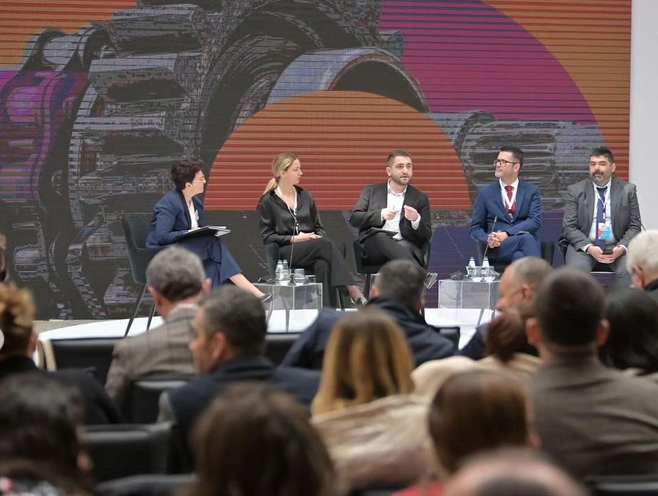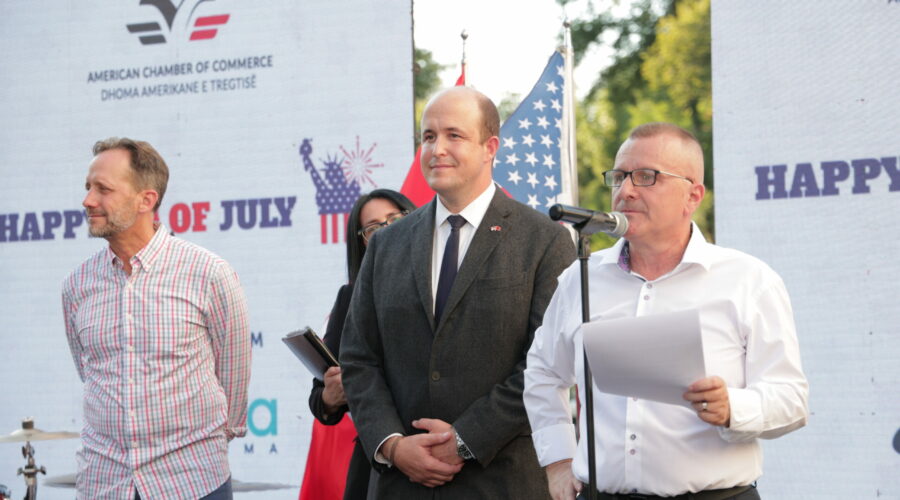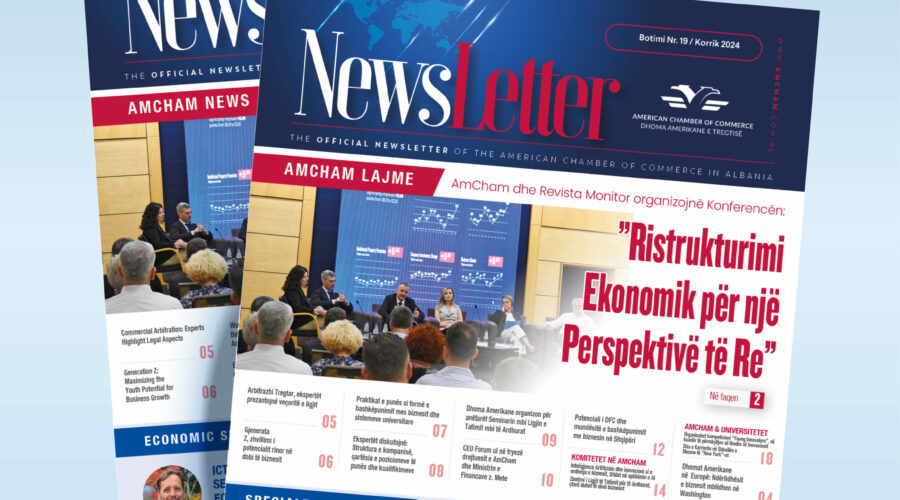Emphasizing the formulation of policies to foster learning, skill enhancement, and workforce qualification in support of the country’s economic growth, the conference was jointly organized by the Ministry of Economy, Culture, and Innovation, in collaboration with the EU Delegation to Tirana, UNDP, and the Swiss Agency for Development and Cooperation. UNDP, as one of the key organizing international entities, underscored during the conference the vital role of the private sector and business community in Workforce Development (WD), advocating for diversified approaches to human capital development to meet the demands of a dynamic market and an innovative economy.
A session dedicated to the private sector’s involvement in providing WD convened industry experts, including Roden Pajaj and Elvis Kotherja, Chairpersons of the Labor and Ethics Committees, and the Tourism Committee, respectively. Representatives from the American Chamber of Commerce highlighted strategic policies aimed at fostering collaboration between the business community and vocational and university education. These policies are intended to shape a skilled workforce aligned with market needs.
The session fostered a professional discourse on engaging all stakeholders in developing tailored programs to enhance workforce skills, thereby supporting sectoral growth and addressing the primary challenges of the labor market. Discussions centered on alternative approaches to human capital development and innovative strategies to tackle the prevailing workforce challenges. Participants explored alternative financing mechanisms and long-term policy frameworks to address these national imperatives. Additionally, the Chamber representatives underscored the urgency of embracing a fresh mindset and leadership style in our businesses, mirroring that of policymakers. Today, expenditures on organizational training and human capital development must not be seen merely as costs, but rather as investments in business sustainability through the sustainability of human capital.
The concluding session of the conference generated innovative ideas contributing to the formulation of a comprehensive national lifelong learning policy. This policy aims to align individual learning goals with the economic imperative of nurturing a qualified, sustainable, and adaptable workforce, thus harmonizing personal aspirations with the exigencies of the economy.




